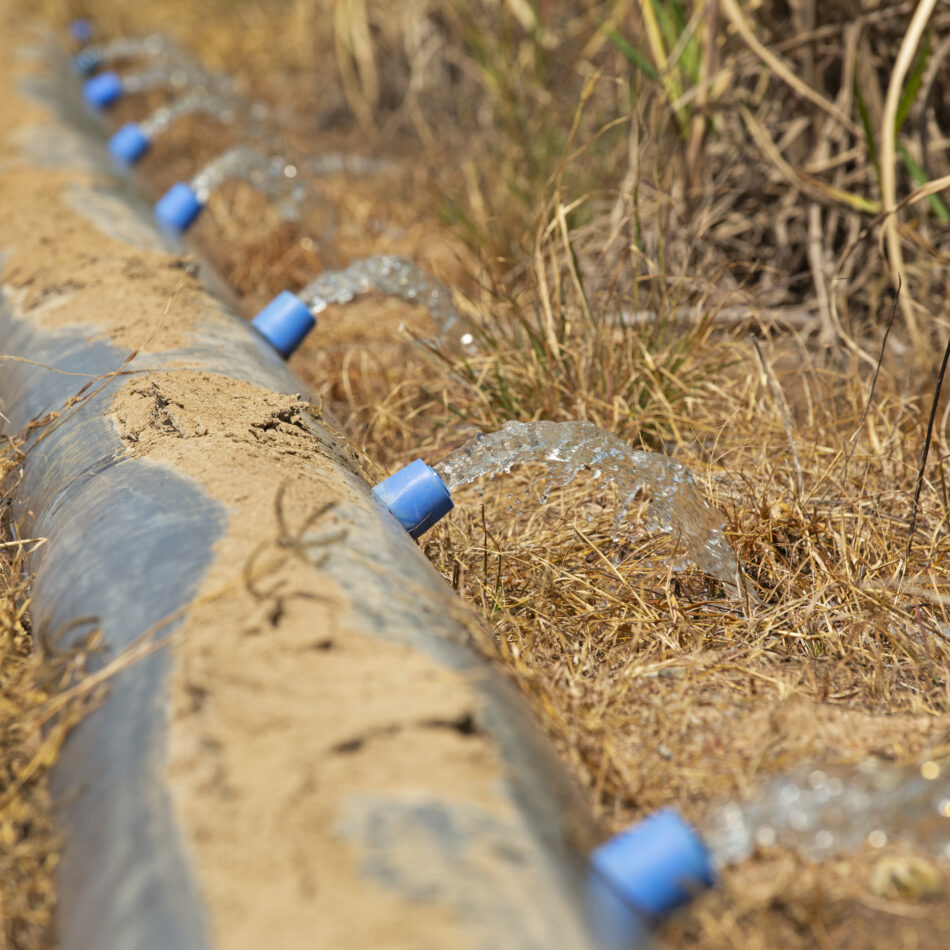More than a thousand far north Queensland producers are expected to take part in a world first blockchain-based water market project, when it goes live mid-2022.
The new Scaling next generation water markets in Northern Australia project between the CRCNA, Civic Ledger, FNQ Growers and Inclusive Growth Partners will de-risk agriculture development across Northern Australia by addressing growing water security issues and protecting fair access to water.
Researchers will test the paradigm of next generation water markets at scale by establishing the platform to enable the Mareeba-Dimbulah Water Supply Scheme (MDWSS) on Queensland’s Atherton Tablelands to move to its blockchain-enabled water market and trading platform – Water Ledger.
CRCNA CEO Anne Stünzner said the the implementation of Water Ledger in the MDWSS is a strategic research test-bed for real time continuous water accounting and grower-led trading.
“This project will have broader appeal across Northern Australia as we look for better ways to enhance the transparency and governance of emerging water markets to support the sustainable economic development of the north,” she said.
Far North Queensland Growers’ President Joe Moro said industry and agricultural communities need to have confidence in place-based governance models around new water markets.
“The nation relies on our avocados and mangoes – we need a water market platform that we can trust, so that the crops that we plant today have the water they need tomorrow,” he said.
This new investment from the CRCNA builds on Civic Ledger’s 2020 project, trading temporary water allocations on the blockchain as part of the Improving water markets and trading through new digital technologies pilot project in the MDWSS.
This pilot proved Water Ledger could reduce trade times – the time that it took to get trade approval from the market operator – from months to days, as the actual trades on the blockchain only take seconds. Most importantly, it published the last traded price in real time.
Civic Ledger CEO, Katrina Donaghy said with global water resources becoming scarcer it was vital they were protected by best in management practices.
“We are confident Water Ledger is best-in-class to deliver the most reliable solutions to mitigate future uncertainty and ensure water security across Northern Australia.
“It’s vital that we only use the most accurate and trustworthy data in making water management decisions and blockchain technology helps us do that. The planned adoption and scale-up of the Water Ledger will be enable the emergence of an efficient and active grower-led water market in Northern Australia for decades to come,” she said.
Managing Partner of Inclusive Growth Partners, Cassian Drew said improving water market governance and participation from producers will unlock new economic opportunities across the north.
“Our place-based investment and governance platform will support growers, indigenous Australians and investors to create and participate in new opportunities enabled by Water Ledger and the work of FNQ Growers and the CRCNA,” he said.
About blockchain
Blockchain is an emerging way for industries and government to make and verify transactions, streamlining processes, reducing the potential for error and fraud.
Blockchain supports water markets with its ability to provide a verifiable record of exchange and ownership of a water allocation at any given time. A key advantage of blockchain is that as a system it is owned by all those who participate in the water market. No one can have more information than another meaning that it cannot be operated in the interest of only a few.
More information
CRCNA Communications Manager, Carla Keith | 0499 330 051
Civic Ledger Marketing Manager, Akasha Rose | akasha@civicledger.com
FNQ Growers President, Joe Moro | 0418966960
Inclusive Growth Partners, Cassian Drew | cassian.drew@inclusivegrowth.com.au


